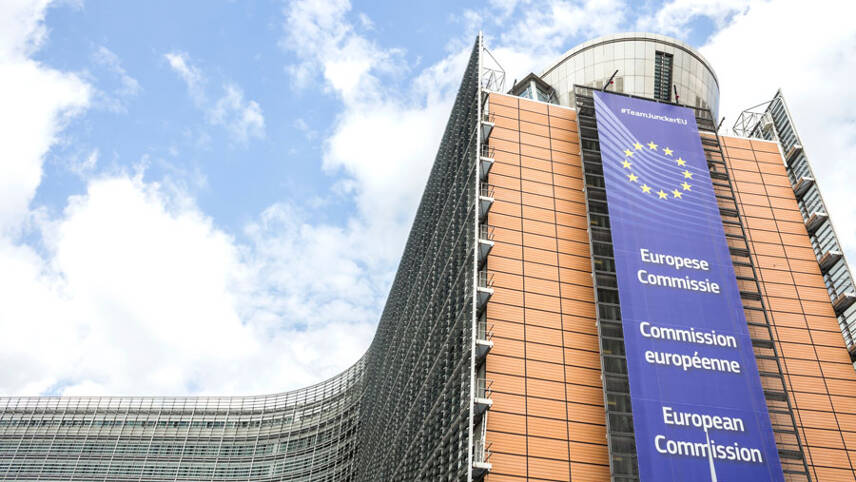Register for free and continue reading
Join our growing army of changemakers and get unlimited access to our premium content

Berlin launches €23bn industrial decarbonisation programme
Since the US approved the Inflation Reduction Act, which sets aside more than $300bn for low-carbon industries, in August 2022, the global green subsidy race has been heating up. The EU subsequently pledged to allocate an initial €250 for its Green Deal Industrial Plan, from existing public funding. This will provide subsidies and simplify the regulatory environment for sectors such as renewable energy and electric vehicles.
Germany, for its part, is set to deliver a €23bn funding scheme to decarbonise hard-to-abate heavy industrial sectors such as chemicals, steel and cement, with a maximum of €1.3bn available to each of its eligible sectors.
The federal government opened applications for the first tranche of funding, totalling €4bn, last Tuesday (12 March). Funding will be used to help companies pay the difference between the upfront cost of a high-carbon piece of kit versus low-carbon equipment.
A second €19bn tranche will be opened in autumn. Companies seeking funding must set out credible plans to reduce their absolute emissions by 90% or more by 2050.
Corporate Sustainability Due Diligence Directive clears major hurdle
Proposed by the European Commission in February 2022 after pressure from the European Parliament, the Corporate Sustainability Due Diligence Directive (CSDD) will implement the regulatory architecture needed to better hold big companies responsible for violations of human rights and environmental standards in their value chains.
The directive’s progress had been challenging, with at least half of MEPs against the initial proposals for fears that they could place excessive burdens on businesses at a challenging time economically.
Late last week, a watered-down version of the Directive was approved, in an effort to get the legislation over the line before this summer’s elections.
The new version will apply to businesses with 1,000 or more employees and with an annual turnover of €450m or more. There are some 5,300 businesses operating in the EU meeting these criteria. Previously, there were hopes of the Directive taking in around 10,000 businesses.
The updated Directive also weakened requirements for businesses to audit waste management in the supply chain and to be held responsible for the actions of firms they work with indirectly.
Reaction has been mixed. Some argue that any progress is good, while others are bitterly disappointed at missed opportunities to implement a stronger Directive. Read edie’s full story here.
Relaxed Euro 7 emissions requirements approved
A theme of last week’s news has been the weakening of policy frameworks in a drive for more rapid sign-off.
The European Parliament approved a revised deal on the next phase of emissions rules for cars, trucks and buses, known as Euro 7 standards, on Wednesday (13 March). MEPs on the left have argued that they do not go far enough, presenting little in the way of improvement on current Euro 6 standards. Others on the right have said that even watered-down requirements remain “unrealistic”.
While Euro 7 does include stricter emissions limits on buses and trucks, the requirements for cars and vans have not been significantly tightened. Moreover, efforts to improve the assessment process did not prove successful.
The EU Council will now need to officially approve the Euro 7 text.
With electric vehicles becoming more popular, Euro 7 should also include mandates for improved battery durability in a bid to boost battery lifespans. This has been praised across the political spectrum, and by the European Automobile Manufacturers Association (ACEA).
‘Unambitious’ plans to tackle textile and food waste backed by MEPs
New targets to reduce food waste across the EU and to curb textile waste by businesses were approved on Wednesday (13 March) with scant opposition – but several environmental NGOs have slammed the goals as unambitious.
On food waste, food processors and manufacturers will be required to reduce waste by one-fifth this decade. This target is an increase on an initial proposal of 10%. Additionally, retailers, food service providers and restaurants will need to deliver a 40% reduction.
There is also an ambition to cut food waste from homes, which accounts for the majority of this waste generated across the bloc, by 40%.
Formal adoption of these targets will not be possible until after June’s elections.
On textiles, members voted for an updated Extended Producer Responsibility (EPR) Scheme that will increase the amount that producers and retailers will need to contribute to collection, sorting and recycling. Nations, meanwhile, will need to extend their networks of collection and recycling infrastructure.
NGOs including Zero Waste Europe had been hoping for time-bound, numerical targets to prevent and recycle textile waste. It had recommended a target of 10-15% now, rising to 33% by 2040.
Building energy efficiency directive edges closer to sign-off
Buildings account for around one-third of the EU’s annual energy consumption and the operation of buildings generates just under 30% of the bloc’s annual greenhouse gas emissions.
In a bid to tackle these emissions while also improving public health, the EU has been progressing an Energy Performance of Buildings Directive to mandate energy efficiency improvements and onsite solar.
The Directive will require each EU member state to reduce the energy use of residential buildings by 20%, against a 2020 baseline. 55% of the gains must come from the bottom 43% of worst-performing buildings. There are also requirements for the worst 26% of offices and schools to be improved by 2033.
Additionally, member states must axe any subsidies for fossil-fuelled heaters by the start of 2025 and should mandate solar panels on the roof of new houses.
There is some disappointment that the law will place responsibility on individual nations rather than having a centrally managed body. The EU Council will now need to officially approve the text.


Please login or Register to leave a comment.